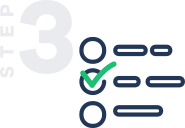› Industries › E-Commerce or Internet Sales




Running a successful eCommerce business often requires access to capital. Since eCommerce businesses exist entirely online, online merchants must rely exclusively on digital marketing solutions for their eCommerce websites to stay relevant. However, with so many digital marketing solutions available, eCommerce businesses must take advantage of any tools to generate quality traffic.
Whether you’re looking to expand your online store, purchase inventory, or improve cash flow management, finding the right eCommerce financing solution is essential. Unfortunately, many e-commerce businesses struggle to access traditional funding options due to a lack of hard assets and the unique structure of online operations. E-commerce businesses usually operate with small profit margins, which complicates financing efforts.
United Capital Source specializes in facilitating eCommerce Financing options for retail businesses that generate internet-based revenue from customers using credit cards and PayPal as payment methods.

eCommerce businesses take payments from customers via debit and credit card. Because these are the primary payment options accepted for an online customer, this makes these businesses the perfect candidates for eCommerce financing. A lump sum of financing is provided with a merchant cash advance in exchange for a fixed percentage of future debit and credit card transactions. Significant repayments to the loan amount/principal balance are only made when sales volume is on the rise since this type of financing is tied to sales volume.
In addition to this repayment system, what makes a merchant cash advance ideal for eCommerce financing is that good cash flow is not a strict requirement for approval with an eCommerce lender. eCommerce financing loans can be distributed at almost any stage of your financial cycle, regardless of seasonal ups-and-downs.
Many UCS clients use e-Commerce financing loans to finance inventory and marketing campaigns, both of which are typically long-term investments. Discounts for inventory may be offered when revenue is predictably down, and marketing campaigns must be launched well ahead of peak buying periods. Credit card processing loans (merchant cash advances) allows eCommerce companies to invest several months before paying off the lender debt with the increased revenue from your price-based promotions, expanded product selection, and increased order value.
Other types of small business loans and low-interest rate options that could make sense for your needs are the Brex card or a business line of credit. The former financing option can be a great way to access working capital and pay your vendors upfront or ahead of due dates. Obtaining funding from eCommerce financing lenders and making timely payments on your purchase will make you eligible for discounts, benefits and fosters a relationship that ensures quick access to new products throughout the year, not to mention better purchasing power over time.
Business lines of credit are geared towards short-term investments or last-minute inventory financing. If your customers love an item that is selling surprisingly well, you could order more and then pay off the entire balance with the sale proceeds received immediately afterward. Business lines of credit can also get you over the occasional financing “hiccup,” which are all-too-common given the eCommerce industry’s volatile nature.
We can also facilitate eCommerce financing for business owners with a low credit score. Your consumers don’t care one bit about your personal credit history, and in the same light, it shouldn’t matter to lenders either if those consumers purchase and love your products and services. Apply now to see how much you qualify for!
eCommerce business loans are financing solutions specifically designed to meet the unique needs of online retailers. These loans can help e-commerce businesses manage cash flow, purchase inventory, cover business expenses, or expand operations.
eCommerce loans can be short-term or long-term and come with varying rates, terms, costs, and required qualifications. Many eCommerce business owners require fast access to capital to achieve their goals.
Thus, eCommerce business loans can take the form of:
eCommerce financing works by providing online sellers and retailers with access to capital through various business funding products. Some loans typically require collateral, a personal guarantee, or a good business credit score. Others are accessible as unsecured financing with minimal documentation.
Many UCS clients use e-Commerce financing loans to finance inventory and marketing campaigns, both of which are typically long-term investments. Discounts for inventory may be offered when revenue is predictably down, and marketing campaigns must be launched well ahead of peak buying periods.
Credit card processing loans (merchant cash advances) allow eCommerce companies to invest several months before paying off the lender debt with the increased revenue from their price-based promotions, expanded product selection, and increased order value.
Alternative business lenders may offer revenue-based funding or asset-based lending, which focuses on the business’s revenue rather than credit. Revenue based financing provides an upfront lump sum of capital in exchange for future revenue, while asset-based lending uses business assets like inventory as collateral to determine borrowing amounts.
Many eCommerce businesses borrow money to fund daily operations, which can take the form of working capital loans. These loans fund operational costs such as payroll, inventory, and more. Most working capital loans are short-term financing.
eCommerce businesses use business term loans for significant investments. Term loans provide a specific amount with a defined repayment schedule based on a fixed or variable rate. These can be short—or long-term loans. Short-term loans generally have six—to 18-month repayment terms and tend to be easier to qualify for than long-term loans. Long-term loans, with a repayment period of two years or more, typically come with higher amounts and lower interest rates than short-term loans.
Business lines of credit are geared towards short-term investments or last-minute inventory financing. Business lines of credit allow access to cash whenever needed, allowing borrowers to draw funds up to an agreed credit limit and only pay interest on the amount drawn. If your customers love an item that is selling surprisingly well, you could order more and then pay off the entire balance with the sale proceeds received immediately afterward. Business lines of credit can also get you over the occasional financing “hiccup,” which are all too common given the eCommerce industry’s volatile nature.
Consider equipment financing if you’re looking to upgrade your computers or other fixed asses. Equipment financing uses the purchased equipment as collateral to keep interest rates low.
Another option is accounts receivable factoring if your eCommerce business sells on credit. Invoice factoring involves selling unpaid invoices to a factoring company at a discount for immediate cash flow.
Well-qualified and established eCommerce businesses may be able to access SBA loans, backed by the Small Business Administration. SBA loans offer low rates, high amounts, and long repayment terms, with the SBA guaranteeing part of the loan’s proceeds. They can provide up to $5 million and have repayment periods of up to 25 years. These typically come in the form of a fixed-term loan with stable monthly payments.
| FUNDING TYPES | MAX AMOUNTS | STARTING COSTS | SPEED |
|---|---|---|---|
| Merchant Cash Advances | $5k – $5m | Starting at 1-6% p/mo | 1-2 business days |
| SBA Loan | $50k - $10m | Starting at Prime Rate + 1% | 4 -12 weeks |
| Business Term Loan | $5k - $10m | Starting at 1-4% p/mo | 1-3 business days |
| Business Line of Credit | $1k - $1m | Starting at 1% p/mo | 1-3 business days |
| Receivables/Invoice Financing | $10k - $25m | Starting at 1% p/mo | 1-2 weeks |
| Equipment Financing | Up to $10m per piece | Starting at Prime Rate + 1% | 3 -10+ business days |
| Revenue Based Financing | $10K – $5m | Starting at 1-6% p/mo | 1-2 business days |
eCommerce loans provide fast access to working capital, flexible terms, and diverse financing options. Online merchants can use these loans to purchase inventory, cover operational expenses, or invest in growth opportunities.
Alternative funding partners often approve loans faster than traditional lenders, offering funding solutions for businesses with limited assets. Business credit cards and lines of credit support ongoing cash flow management needs. Equity investments can also provide capital without repayment obligations, though they involve giving up ownership.
Despite their benefits, eCommerce loans have drawbacks. Many new eCommerce businesses struggle to access traditional funding and often lack hard assets to use as collateral when seeking financing.
Many lenders have strict qualifications, including trading history, credit score, or personal guarantee requirements. Some options, like invoice factoring and revenue-based financing, may be more expensive due to risk-based fees. Long-term loans may require more documentation and take months to approve.
Pros:
Cons:
The amount of paperwork required depends on the product you choose. Funds can be approved and distributed for most products within 1-3 business days. Here’s how to apply:
The first step is choosing the most sensible solution to the problem at hand. This should require some research, as each product is designed for different types of expenses and cash flow cycles. Are you looking to cover a short-term or long-term expense? Is demand expected to increase or decrease in the coming months?
Considering the funds’ purpose will also help us determine the correct borrowing and terms for your needs.
Here are the documents and information required for eCommerce Business Loans:
SBA Loans require additional documents and information, such as financial statements. To learn what’s needed for the SBA-backed loans, visit our SBA Loan page.
You can begin the application process by calling us or filling out our one-page online application. Either way, you’ll be asked to enter the information from the previous section along with your desired funding amount.
Once you apply, a representative will contact you to explain the repayment structure, rates, and terms of your available options. This way, you won’t have to worry about any surprises or hidden fees during repayment.
If you’re approved, you’ll hear back from us within 24 hours. Once funded, capital should appear in your bank account within 24 – 48 hours. For SBA Loans, the process generally takes anywhere from a few weeks to a few months, depending on the type of loan.
Your business loan isn’t just a way to get financing for your business. It’s also an excellent opportunity to start building (or improving) your credit.
Regardless of the type of business loan you get, make all your required payments on time and in full. If you get a business credit line or another form of revolving credit, keep your balance below the credit limit.
Consistently making your business financing payments on time and in full will positively impact your credit. And that means preferred rates and terms when you next need business financing.
If we decline your application, you might have applied for the wrong product for your cash flow. In this case, we would likely recommend a different product with a less hazardous repayment structure.
We might also decline your application after determining that you cannot afford more debt now. Your needs and financial circumstances might be better suited for another financing tool, like a business credit card or personal loan.
If your credit score prevents you from accessing financing, you should consider searching for reputable credit repair services and improving your scores.
You can use e-commerce business loans for various purposes. e-Commerce companies often use these e-commerce loans for:
Yes, eCommerce startups can explore various financing options. E-commerce companies typically do not generate steady revenue during their early growth phases. Many e-commerce startups rely on revenue based funding, invoice factoring, or equity investments. E-commerce companies have access to equity investments, which involve giving up ownership in exchange for capital. Several equity investors consider working with eCommerce businesses with a reliable business model. Equity investments involve acquiring funds in exchange for equity in the company, impacting ownership control.
Alternative lenders often do not consider the owner’s credit score when approving a loan, focusing instead on revenue. Strengthening your business credit, increasing revenue, or reducing debt can also improve your chances of approval.
The answer depends on your qualifications, the type of loan you’re seeking, and the financing company. Qualifications vary by loan type and provider. Many eCommerce businesses struggle to qualify for traditional bank loans. Most lenders require good business credit scores to qualify for financing.
Lenders typically assess annual revenues and time in business, often requiring at least six months of trading history. E-commerce businesses typically require certain documents to apply for a loan, such as bank account statements, tax returns, and proof of revenue. Some lenders require collateral, while others may consider revenue or future sales for approval. Many alternative lenders offer unsecured loans based on revenue.
To apply for small business loans, gather your business documents, including financial statements, tax returns, and details about your eCommerce platform. Choose a loan provider that aligns with your needs—banks, credit unions, or online lenders—and submit an application.
The loan application process may vary in length from a few hours to several months, depending on the lender. Certain loans, like SBA loans, may take several months to approve due to their rigorous requirements. Alternative lenders often provide faster funding with fewer documentation requirements.
Yes, some lenders offer financing based on business revenue or future sales instead of credit score when you don’t have a good credit score. We can facilitate eCommerce financing for business owners with a low credit score. Your consumers don’t care one bit about your personal credit history, and in the same light, it shouldn’t matter to lenders either if those consumers purchase and love your products and services.


